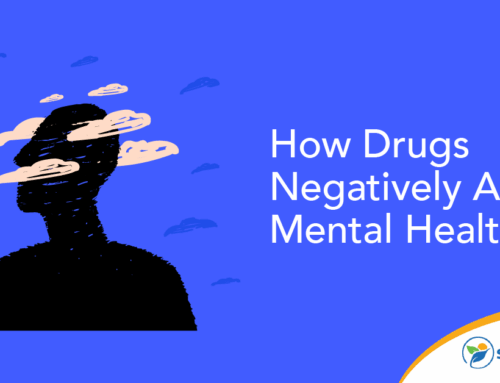Sudafed is a popular decongestant medication that’s taken by both adults and older children. For most people, this medication is safe to use and has few side effects. However, taking Sudafed with alcohol can cause undesirable side effects, such as drowsiness and dizziness. Combining Sudafed and alcohol could also weaken the effects of the drug.
This article outlines whether a person can take Sudafed with alcohol, what effects alcohol can have on Sudafed and who can (and can’t) take this popular medication.
What Is Sudafed?
Sudafed is a brand name for the medication pseudoephedrine. Pseudoephedrine is a drug commonly used to treat nasal congestion.
Some Sudafed products contain additional ingredients, such as acetaminophen or naproxen.
People commonly use Sudafed to treat:
Because of its stimulant effects, some people misuse Sudafed in nonmedical or recreational ways, such as for sports doping or increasing energy.
Can You Drink on Sudafed?
It is not recommended to take Sudafed with alcohol. Combining phenylephrine and alcohol can cause some negative side effects, so it’s not advised to do so.
Below are some reasons a person may wish to avoid drinking alcohol while taking Sudafed.
Stimulants Can Mask the Feeling of Intoxication
Sudafed is a stimulant. If a person takes stimulants with alcohol, these medications can mask the feeling of intoxication.
This may lead a person to consume more alcohol because they aren’t experiencing the symptoms of intoxication. Heavy alcohol consumption carries several risks, including:
- Increased risk of injuries
- Increased risk of violence
- Alcohol poisoning
Sudafed and Alcohol May Cause Dizziness and Drowsiness
Alcohol can also interact with Sudafed and may cause some possible side effects. For example, drinking alcohol while taking Sudafed may cause a person to experience drowsiness, dizziness or both.
Alcohol Can Weaken the Immune System
The National Institute of Alcohol Abuse and Alcoholism states that drinking a large amount of alcohol on a single occasion can slow the body’s ability to fight infections. Heavy alcohol consumption even impairs the functioning of a person’s immune system for up to 24 hours, which isn’t a desirable thing for a person who’s already feeling the effects of a cold or influenza.
A person who’s using Sudafed to treat nasal congestion associated with viral or bacterial infections may wish to avoid consuming alcohol to increase their chances of making a quick recovery.
Alcohol Can Reduce the Effectiveness of Sudafed
Alcohol can contribute to feelings of nasal congestion. This can make it feel as though your decongestant medication is less effective. If someone is taking Sudafed to combat congestion, it’s probably a good idea to avoid consuming alcohol so they can feel the full benefits of the medication.
One 2022 study concluded that acute alcohol consumption could reduce how open a person’s nose is. These results were the same for both heavy and non-heavy alcohol consumption. Sudafed works by constricting the blood vessels in the nose, so combining alcohol with the drug could reduce the beneficial effects of the drug.
Who Can’t Take Sudafed?
Sudafed is generally safe for most people. However, there are some groups for whom use of the drug may be contraindicated.
Pregnant People
Pseudoephedrine is present in some medications that pregnant people take. However, some studies have found that using pseudoephedrine during pregnancy may carry a small increase in the risk of certain birth defects. This research is not conclusive, and the risk is considered to be small.
There are no controlled studies that focus on pseudoephedrine and pregnant people. This means a pregnant person may only wish to use the medication if the benefit to the mother outweighs the potential risks to the fetus.
People Who Are Breastfeeding
Sudafed may also affect people who are breastfeeding. During lactation, only small amounts of a single daily oral dose of pseudoephedrine pass into breast milk. Multiple small studies indicate that no more than 2%-3% of the drug is transferred to the infant, and at such small doses, there’s no adverse effect on the child.
However, pseudoephedrine can reduce daily milk production. A single 60-milligram dose of pseudoephedrine can reduce daily milk production by 24%.
Children Under 2 Years Old
It’s not recommended for children under 2 years to take any cough or cold products containing a decongestant. This includes Sudafed.
The FDA states that children under 2 years may be at risk of serious and life-threatening side effects if they take Sudafed.
Reported side effects of these products include:
- Convulsions
- Rapid heart rates
- Death
The FDA also states that a parent or caregiver should use caution when giving cough or cold medication to children over 2 years old.
Older People
The effects of pseudoephedrine on older adults aren’t well studied. However, if an older person has impaired liver or kidney function, they should use Sudafed cautiously.
If people aged 60 and older overdose on pseudoephedrine, they may experience:
- Hallucinations
- Central nervous system depression
- Seizures
- Death
People with high blood pressure may also wish to avoid using pseudoephedrine. The drug works by narrowing the blood vessels in the nose, but it also narrows blood vessels elsewhere in the body. This could be harmful for people who already have high blood pressure or other cardiovascular issues.
Alternatives to Sudafed
One alternative to pseudoephedrine is phenylephrine. You can freely purchase phenylephrine over the counter at most pharmacies and drugstores. Pseudoephedrine typically requires a government-issued ID to buy and has a purchase limit depending on the state.
Many people also take antihistamines to treat the symptoms of a common cold along with other substances, such as supplements, analgesics and decongestants. Recent studies suggest that while these substances might help alleviate the symptoms temporarily, they don’t work to shorten the duration of the infection. It’s also unclear whether they have any measurable clinical effect on the congestion symptoms that pseudoephedrine specifically targets.
Sudafed Interactions
Sudafed can interact with other medications and may change how either drug works or even cause serious side effects.
People should not take Sudafed with other sympathomimetic drugs, such as Adderall (amphetamine/dextroamphetamine) or Vyvanse (lisdexamfetamine).
They should also avoid taking Sudafed with monoamine oxidase inhibitors or MAOIs, a class of antidepressants.
Sudafed can interact with these medications, causing a sudden, severe increase in blood pressure and a slowed heart rate.
You should also avoid taking Sudafed with vasoconstrictor medications, such as:
- Bromocriptine
- Dihydroergotamine
- Ephedrine
- Ergotamine
- Linezolid
- Oxytocin
- Phenylephrine
This is because Sudafed may contribute to the narrowing of blood vessels and an increase in blood pressure.
Avoid Alcohol When Feeling Under The Weather
It’s best to avoid consuming alcohol if you’re feeling under the weather, especially if you’re taking medications to alleviate any of your symptoms. Alcohol can weaken your immune response, which may impair your body’s ability to fight a viral or bacterial infection. It can also contribute to nasal congestion, making the symptoms of a cold or influenza worse and reducing the effectiveness of Sudafed and similar medications. In addition, Sudafed may mask the feeling of intoxication from alcohol, which may cause a person to consume an unsafe amount of alcohol.
Struggling With Alcohol Addiction? We’re Here to Help
If you find it difficult to avoid using drugs or alcohol and would like some support to break free from addiction, contact Sunlight Recovery today. Our admissions team is here to speak to you in confidence and start you on the path to recovery.







